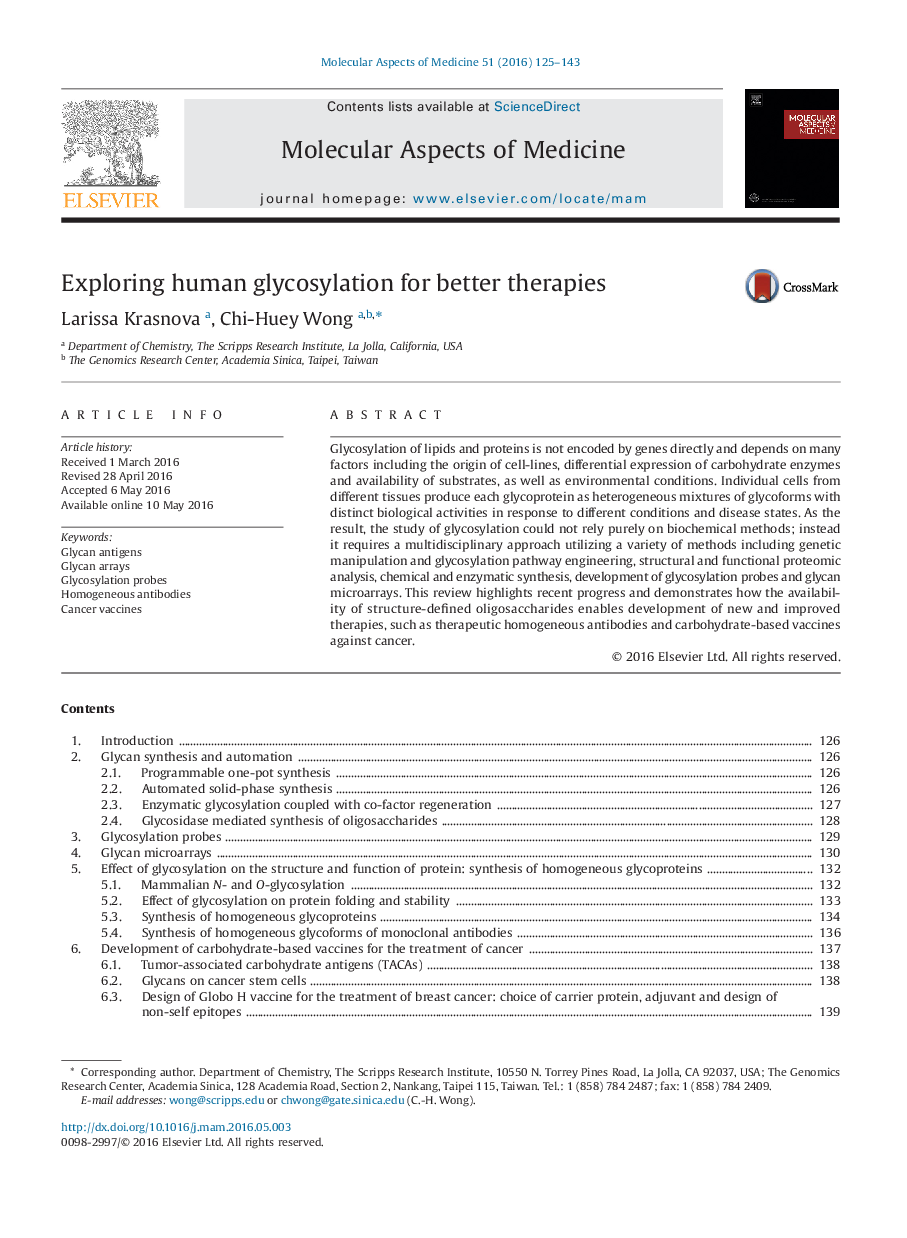| Article ID | Journal | Published Year | Pages | File Type |
|---|---|---|---|---|
| 5513877 | Molecular Aspects of Medicine | 2016 | 19 Pages |
Glycosylation of lipids and proteins is not encoded by genes directly and depends on many factors including the origin of cell-lines, differential expression of carbohydrate enzymes and availability of substrates, as well as environmental conditions. Individual cells from different tissues produce each glycoprotein as heterogeneous mixtures of glycoforms with distinct biological activities in response to different conditions and disease states. As the result, the study of glycosylation could not rely purely on biochemical methods; instead it requires a multidisciplinary approach utilizing a variety of methods including genetic manipulation and glycosylation pathway engineering, structural and functional proteomic analysis, chemical and enzymatic synthesis, development of glycosylation probes and glycan microarrays. This review highlights recent progress and demonstrates how the availability of structure-defined oligosaccharides enables development of new and improved therapies, such as therapeutic homogeneous antibodies and carbohydrate-based vaccines against cancer.
